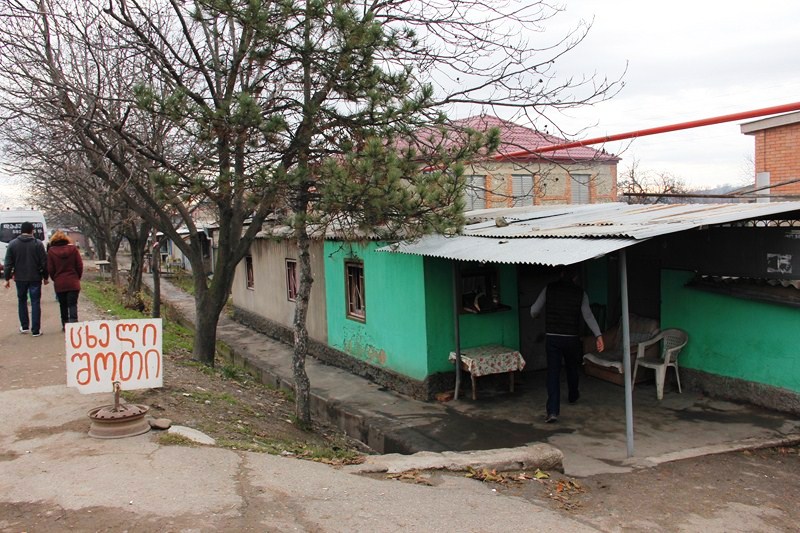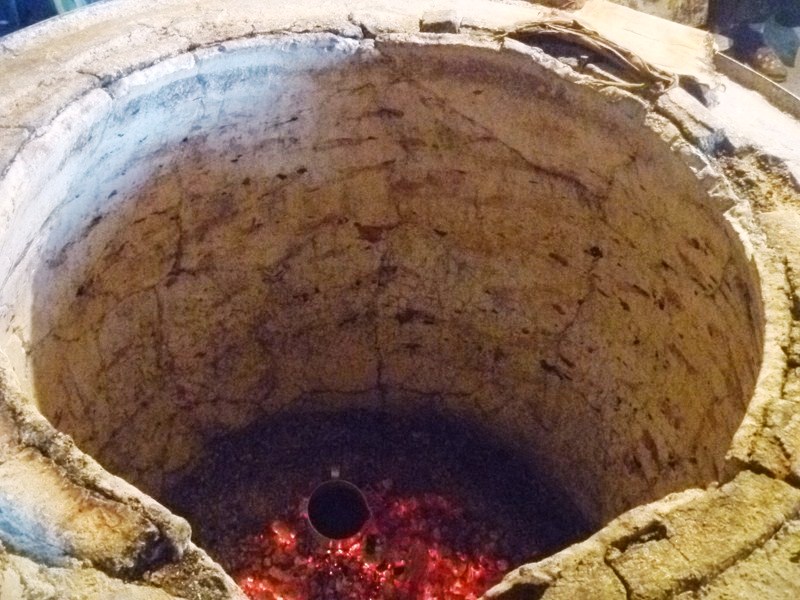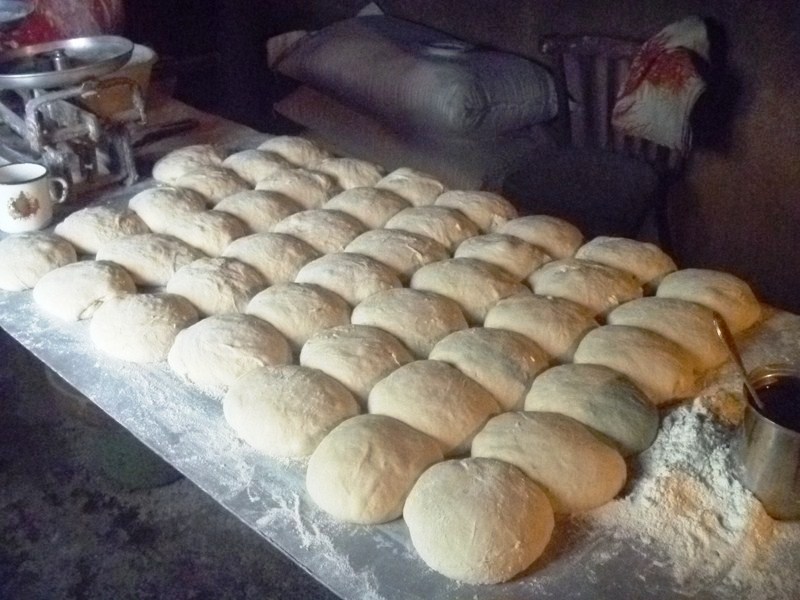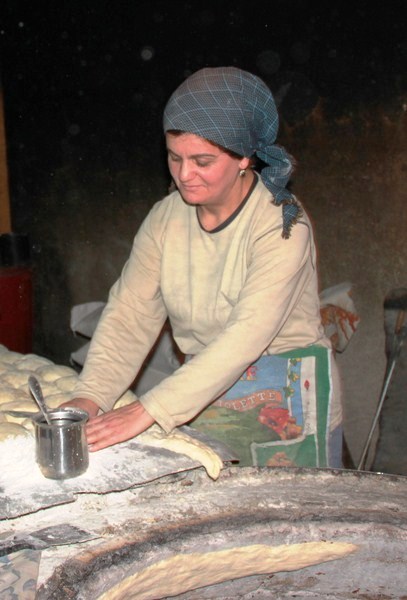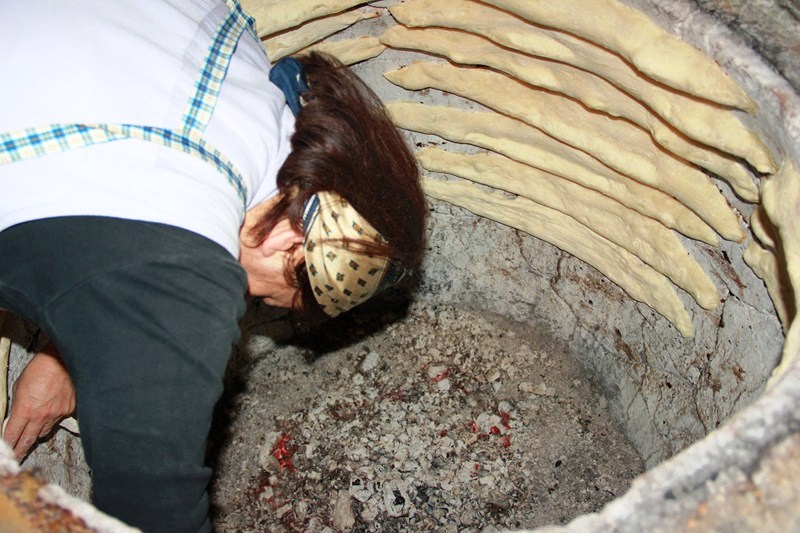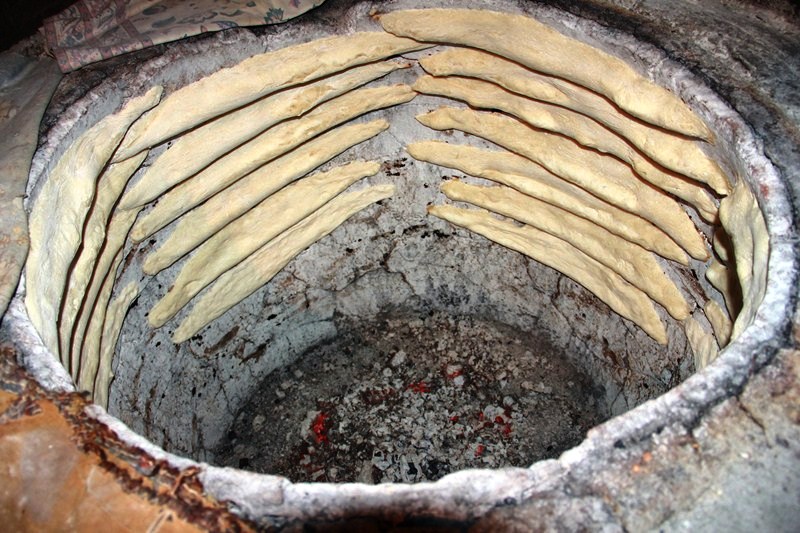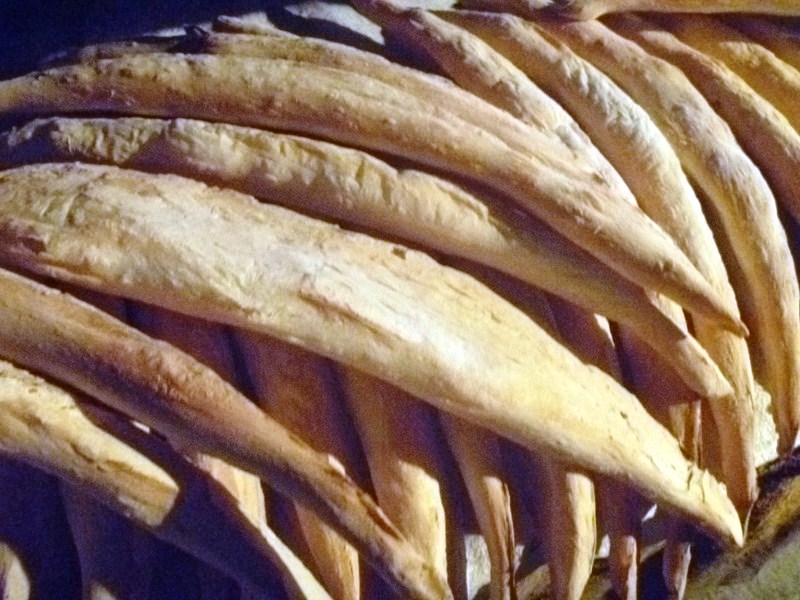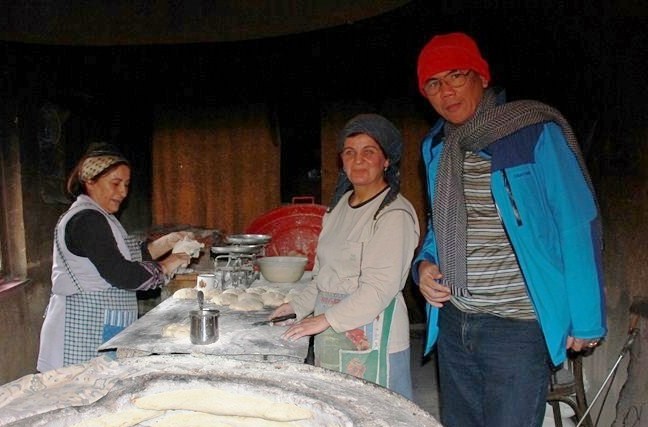We were now on our third and final day of our GNTA-sponsored Georgian Countryside Tour and Buddy, Pancho, Melissa, Riva and I, together with our Georgian guide Sopho, were to travel east again on a 112-km./2-hr. drive, via S5, to the town of Sighnaghi. Just about 75 kms. and a little over an hour out of Tblisi, we made a stopover at the village of Badiauri in the town of Sagarejo where we dropped by a bakery. Here, we observed two elderly Georgian ladies making Georgian bread called puri (pronounced “poo-ree”), the Georgian table staple which is usually served with every meal.
The traditional and very popular puri, especially the long pointed bread called shotis puri, is traditionally baked in a deep, circular, beehive-shaped oven called a tone (pronounced “ton-AY”). A tone (torne/turne in old Georgian), the Georgian version of the tandoor, is made with a mixture of special quartz sand, which is used in making glass, and a fireproof clay called chamuti. When it dries, it fuses into a hard, fireproof surface. This mixture is spread on the outside of the tone and wrapped in linen. The interior, on the other hand, is lined with fire proof bricks. A tone usually lasts for 7-8 years before it will need to be replaced.
Most streets in Georgia have at least one traditional bakery and I have already observed one local bakery before when I was in Borjomi. In earlier times, all bakers came from Racha Region of Western Georgia and they are generally acknowledged to be the best bakers in Georgia.
It takes time to learn how to make good bread which is made from just flour, water, yeast and salt. It also takes much physical strength to hand mix (25 kgs. at a time) and knead the dough but the two ladies were up to the task, taking lumps of dough, grasping them at two ends and stretching them across a kind of curved paddle covered in cloth.
For at least 40 minutes, they let the dough stand for it to rise and the yeast to ferment. Then, they cut the mass of dough into individual “balls” of bread (each weighing about 600 gms.), place them in rows, dust them with flour (to prevent their sticking on the surface) and again let them stand for at least another hour.
Then, they roll the dough, making them spindle-shaped with a broad center portion and tapering ends. Once the tone reaches the desired heat, determined not by a thermometer but by testing the inside wall with loose flour, they then stick the paddle into the oven and skillfully slap the dough tightly against the inside wall of the tone sitting in the middle of the bakery.
In less than 10 minutes, they were done and they took out the baked bread without dropping it in the fire. The fresh shoti come out looking like canoes. They were delicious, with crispy edges, a moist white center and a great aroma.
Ten 50-kg. bags of flour can make more than 1,400 loaves of bread. Nowadays, modern bread factories use electrically powered mixers for the dough when making traditional bread.
Georgia National Tourism Administration: 4, Sanapiro St, 0105, Tbilisi, Georgia. Tel: +995 32 43 69 99. E-mail: info@gnta.ge. Website:www.georgia.travel; www.gnta.ge.
Qatar Airways has daily flights from Diosdado Macapagal International Airport (Clark, Pampanga) to Tbilisi (Republic of Georgia) with stopovers at Hamad International Airport (Doha, Qatar, 15 hrs.) and Heydar Aliyev International Airport (Baku, Azerbaijan, 1 hr.). Website: www.qatarairways.com.

